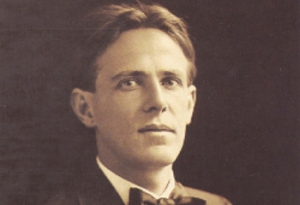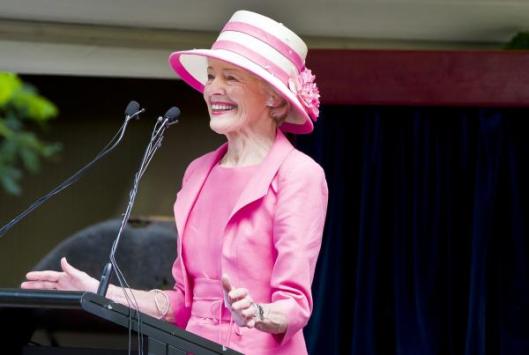Tags
American names, celebrity baby names, famous namesakes, fictional namesakes, name history, name meaning, name popularity, name trends, names from television, nicknames, popular names, retro names, screen names, stage names, UK name popularity, unisex names, US name popularity
After looking at the fastest-rising names in the Top 100 for last year, I thought it would be a good idea to add these names to the database if they hadn’t already been covered. This week we are starting with Billie, a name which has risen through television.
Name Information
Billie is traditionally considered a short form of names such as Wilhelmina, but more practically is used as a feminine form of Billy, short for William. In fact its gender lines are very blurry, because the name originated in the US in the 18th century as a spelling variant of Billy, and for quite some time there were more male Billies than female ones.
In the US, Billie charted for boys on the Top 1000 from 1880, not leaving it until the mid 1980s. It peaked in 1929 at #122, but last year there were just 10 baby boys named Billie. It began charting for girls in 1886, and was in the bottom portion of the Top 100 from 1928 to 1934 – as with the boys, the name peaked in 1929 and 1930 at #79. It left the Top 1000 in 1998, and last year there were 95 girls named Billie, with numbers continuing to fall for both sexes.
In the UK Billie has also charted for both boys and girls, although always much higher for girls. In the mid 1990s Billie was #182 for girls, and generally fell in popularity after that. After hitting a low in 2009 at #673, the name has risen and is now #439. Boys hit a peak in 1997 at 17 births, but since then has mostly around a handful of births per year; in 2014 there were 4 baby boys named Billie.
In Australia, the name has only ever charted as a female name. It first charted in the 1930s and 1940s, when it was around the 300s and 400s. This correlates with the biggest career success for seminal jazz star Billie Holiday, often known as Lady Day. Holiday was born Eleanora Fagan, and took the first part of her stage name from silent film star Billie Dove, called The American Beauty for her good looks (Dove was born Bertha Bohny, so in her case Billie was a screen name). The name’s peak in the US seems to fit better with the film star, as it peaked there before Billie Holiday’s career really began.
The name Billie disappeared from the Australian charts in the 1950s, when Billie Holiday’s career began to fail, embroiled in legal proroblems, drug addiction, and illness; she died in 1959. However it returned in the 1970s at #739, when there was a Billie Holiday revival. A film based on her autobiography called Lady Sings the Blues was released in 1972, with Diana Ross in the starring role, and the soundtrack was a huge success. In 1973, Billie Holiday was inducted into the Grammy Hall of Fame.
After a steep rise in the 1980s, the name Billie climbed more gradually, levelling off around the high 200s/low 300s towards the late 2000s. However, the name began zooming up the charts after 2010, when the hit TV drama series Offspring began screening. This starred Kat Stewart as the bold, brassy and brutally honest big sister Billie Proudman; she puts her wild child past behind her as she matures, and eventually helps her sister Nina raise her daughter.
Based on its trajectory, I predicted that Billie could be in the Top 100 by 2013, encouraged by the fact it was already in the Top 100 in Victoria. Instead it debuted in the national Top 100 in 2015, gaining 19 places or more to make #82. It made the Top 100 in New South Wales for the first time at #99, was the fastest-rising girl’s name in Victoria, going up 40 places to #57, and was #83 in Tasmania. Analysis of data from Sydney shows it is a favourite in the city’s wealthy northern suburbs.
There have been further boosts to the name in Australia, with soapie Home and Away introducing tomboy surfer Billie Ashford in late 2014, and attractive chef Billie McKay winning MasterChef in 2015. AFL star Chris Judd, and his wife, model Rebecca Judd, welcomed their daughter Billie in 2014, making this a celebrity baby name.
Other famous Billies include Broadway and silent film star Billie Burke (real name Mary), who played Glinda the Good in The Wizard of Oz; British pre-war long distance cycling champion Billie Fleming (real name Lilian); American tennis champion Billie Jean King; American country music star Billie Jo Spears; British actress and singer Billie Piper; Australian TV actress Billie Hammerberg; and Australian professional wrestler Billie Kay (born Jessica). Examples of famous men named Billie include Billie Joe Armstrong from the band Green Day and AFL footballer Billie Smedts.
Billie is a retro name only popular in Australia, as there is a local interest in the name. Data shows you are more likely to appreciate the name if you live in Victoria or Tasmania, or in Sydney’s northern suburbs. With Billie, you get a cute and spunky tomboyish name shared with strong and beautiful female namesakes; it’s a casual name that you can take to the beach, but hip enough to dress up nicely in the evenings too. Billie’s day has arrived: the question is, will it keep climbing?
POLL RESULTS
Billie received an approval rating of 46%. 23% of people thought it was only suitable as a nickname, although 22% saw it as strong and spunky. Only one person thought the name Billie seemed smart and classy.










